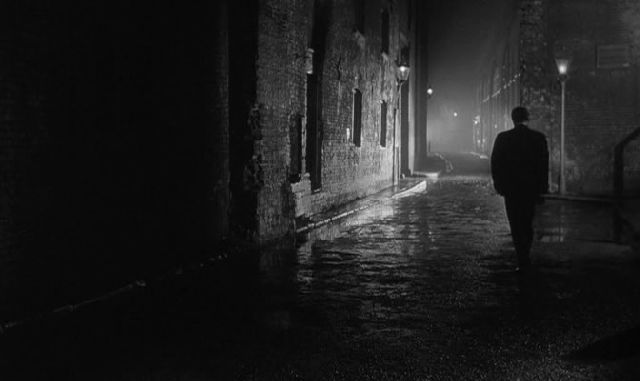All Night Long (1962) 

Director: Basil Dearden
Cast: Patrick McGoohan, Keith Michell, Betsy Blair
Synopsis: The film, based on Othello, is neatly positioned as a vehicle to showcase some of the best Jazz musicians of the period – including Dave Brubeck and Charlie Mingus.
Shakespeare’s Othello is given the hepcat jazz treatment in All Night Long, a little seen British film from 1961, and it provides an unusual viewing experience if nothing else. In fact, it’s not a bad little film, although it is chiefly remembered for its Jazz musician cast who spend the entire film jamming away in the background as the drama unfolds at an all-night party held beneath thunderous skies by upper-class jazz buff Rod Hamilton (Richard Attenborough) in a converted Docklands warehouse long before the yuppies moved in.
The party thrown by Hamilton is to celebrate the first wedding anniversary of bandleader Aurelius Rex (Paul Harris) to Delia Lane (Dietrich protege Marti Stevens in a rare film role), a top jazz singer who has retired from performing at her husband’s request. Other guests at the party include Cass (Captain Beaky himself, Keith Michell) the married couple’s close friend and manager, and Johnny Cousin (Patrick McGoohan) a talented drummer who is planning to draw Delia out of retirement in a new band he is putting together. Undeterred by Delia’s refusal, Johnny sets about manipulating the various other members of the cast in order to get his way.
Musicians aside, this is easily McGoohan’s film; sporting an American accent and a wicked gleam in his eye, he broods and schemes and tries to inveigle himself into everybody’s good graces as he searches for the softest part of their back in which to stick his knife. His machiavellian plotting stretches credibility a little, and it’s difficult to believe that people wouldn’t see through his scheme sooner than they actually do, but McGoohan holds it all together masterfully. Then, when his plot is uncovered and all his plans lie in tatters, he delivers a blistering finale in a scene that, had the rest of the movie reached the same heights, would have marked the entire thing as a classic. Perhaps the film’s main drawback — apart from the sometimes quaintly dated dialogue — is lead actress Marti Stevens; while she gives a respectable performance, she just doesn’t convince as the kind of temptress to fire the desires of so many men. She’s a pretty enough woman but she doesn’t possess the high level of sex appeal required to make the passions aroused believable.
One other aspect that sets this film apart from others of its era is its laid-back attitude toward topics that were still largely considered to be taboo in the early 60s. There are two mixed-race relationships that are not remarked upon throughout the film, and a couple of characters are seen smoking spliffs (which look like cigarillos for some reason). This one is a curiosity to be sure, but it’s worth checking out, especially if you are a jazz aficionado.
(Reviewed 22nd October 2005)
httpv://www.youtube.com/watch?v=KoqZK-UzlpU
